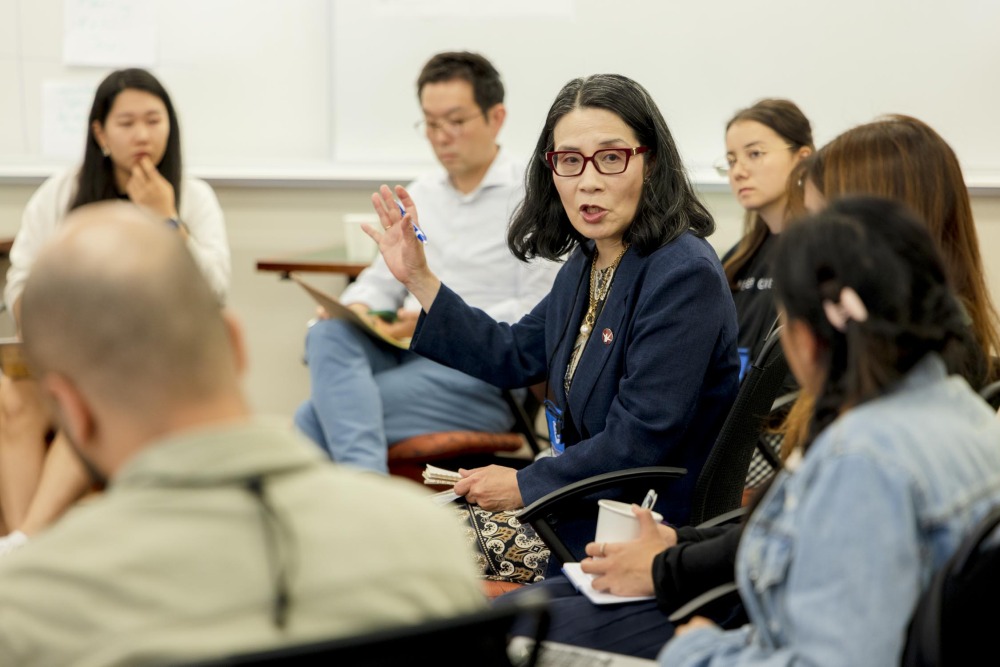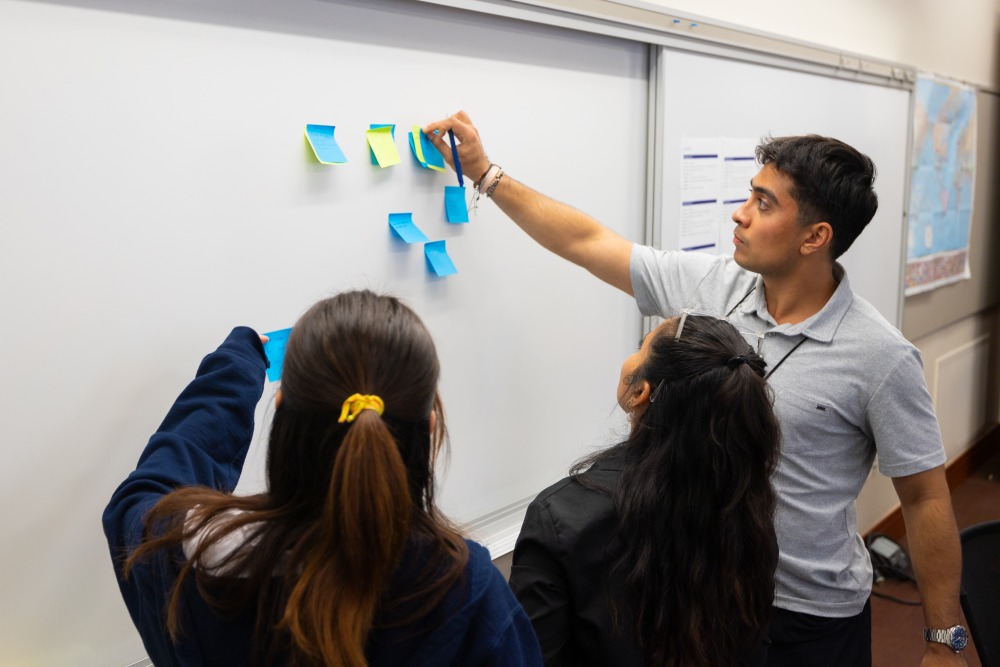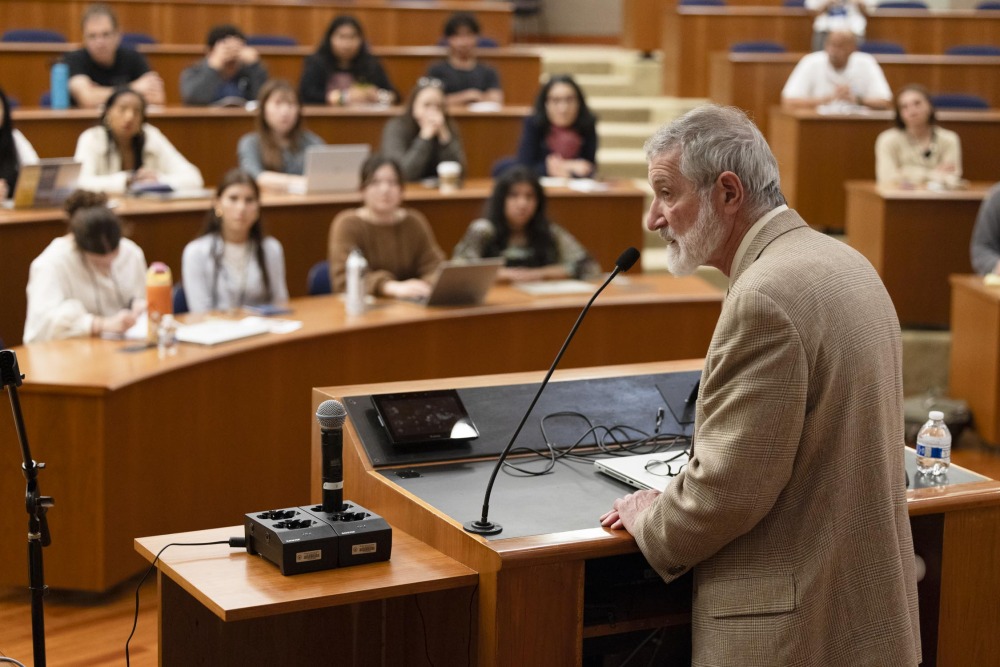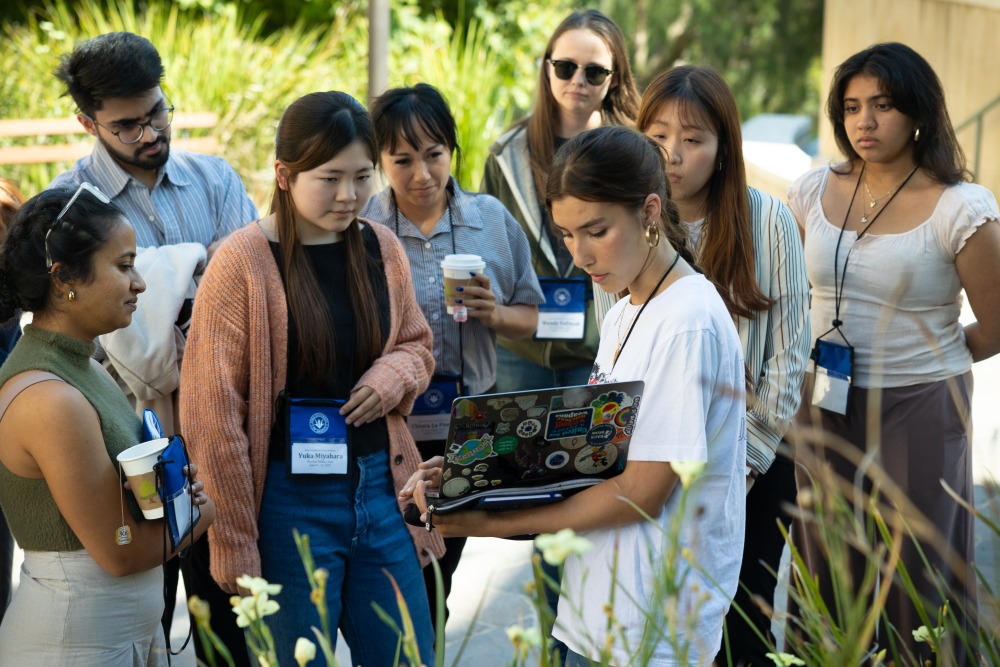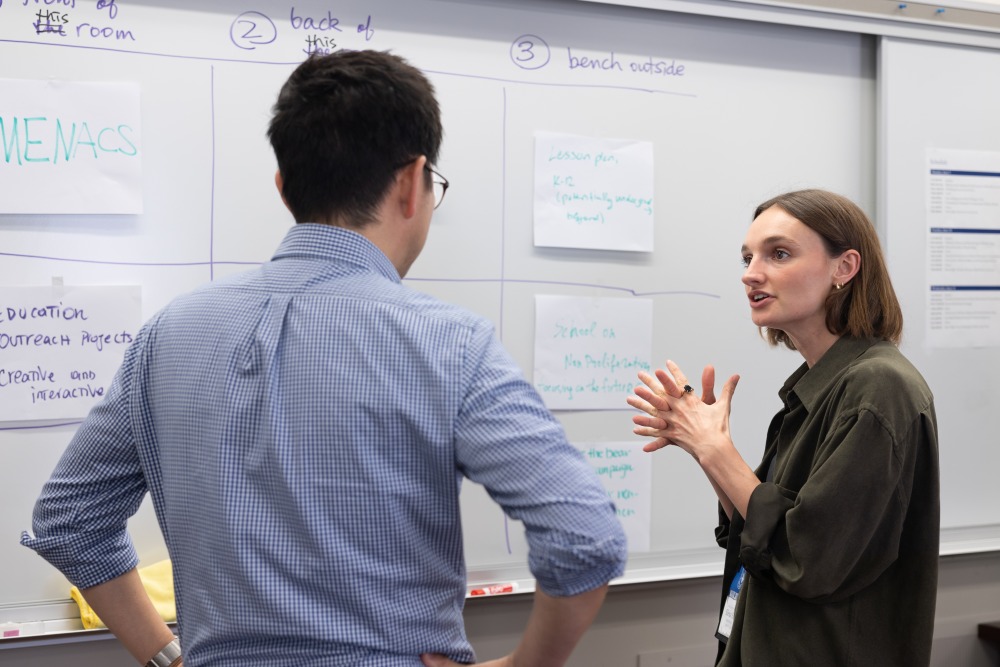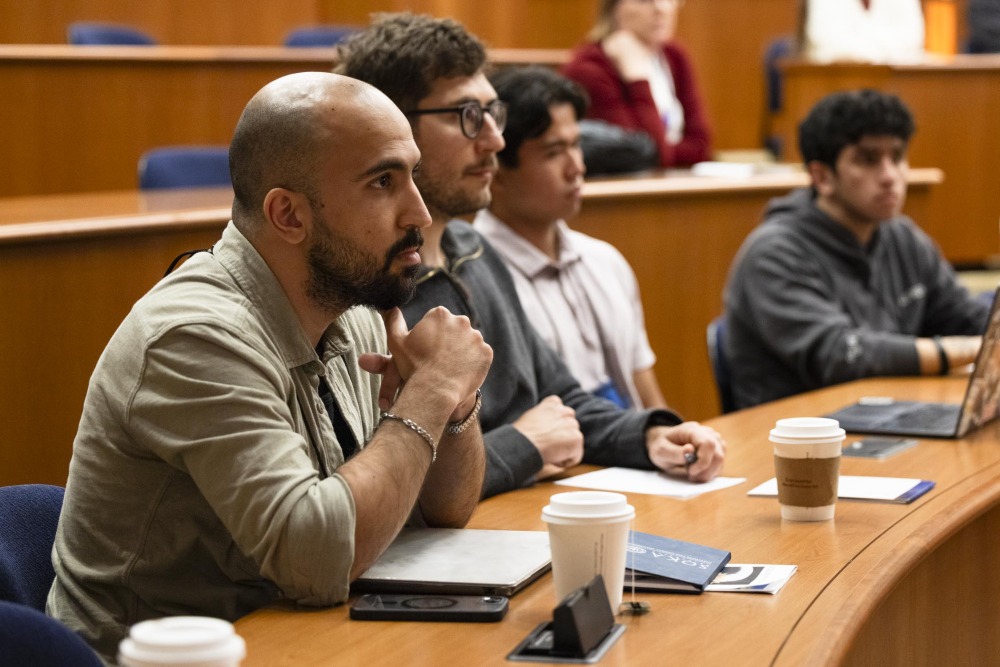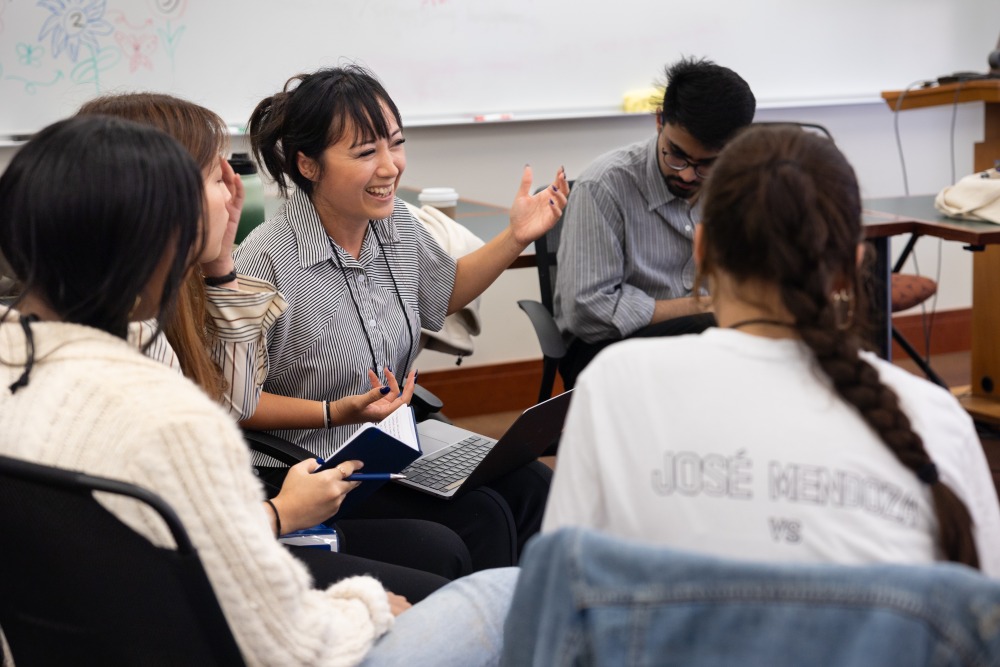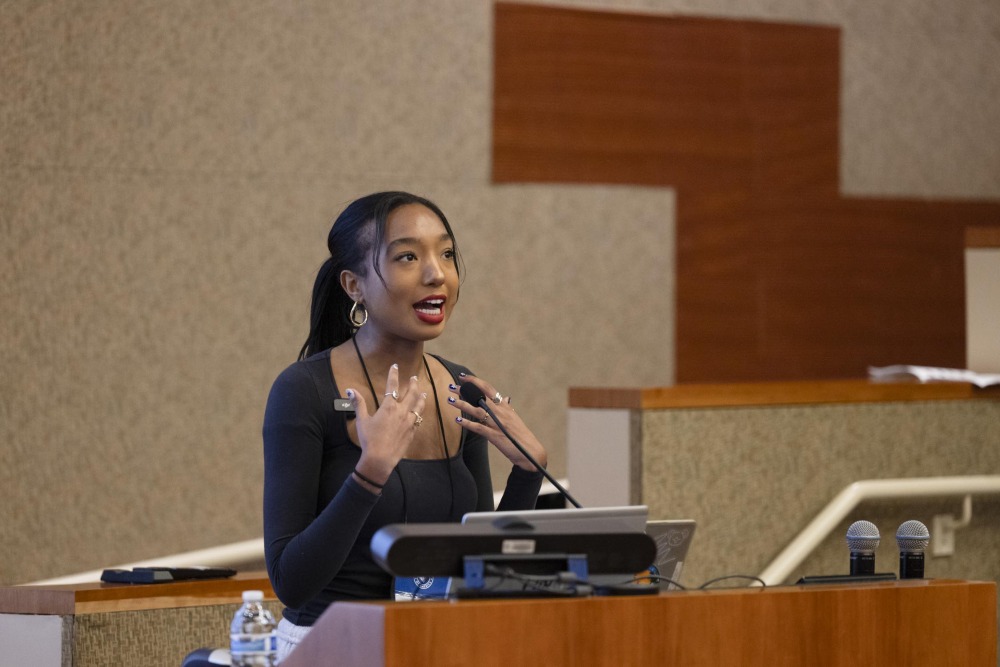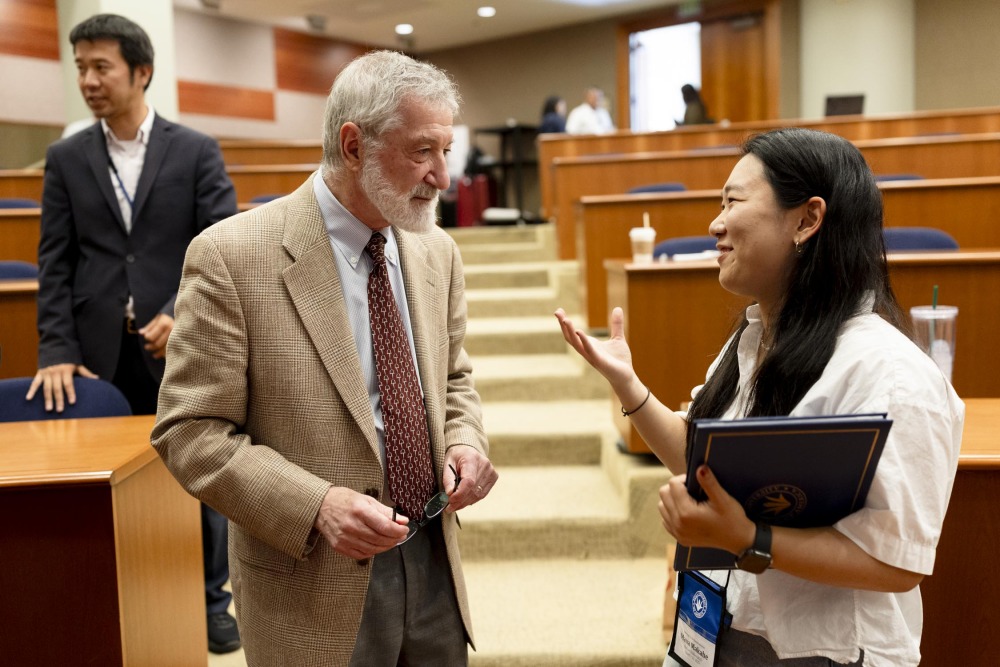Young Leaders Connect With Nonproliferation Experts at Nuclear Politics 2025
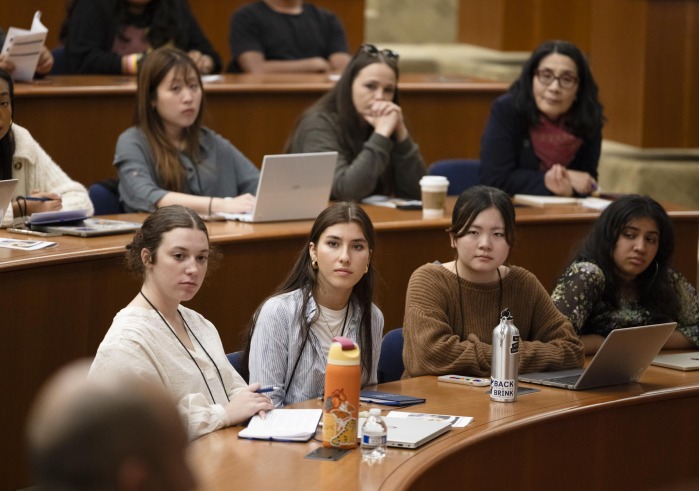
“Whether we have a nuclear war or not is completely up to us,” Dr. Ira Helfand told his audience at SUA on June 12. “It’s really important that we inform ourselves and mobilize the body politic to take a stand.”
Helfand, a member of the International Steering Group of the International Campaign to Abolish Nuclear Weapons, spoke as part of the Nuclear Politics Summer Program, an annual, weeklong workshop on nuclear disarmament and nonproliferation that brought together 16 students from six countries and 13 universities, including Harvard, American University, the University of Denver, San Diego State, Korea University, and the Kyiv School of Economics.
Organized by the Soka Institute for Global Solutions, the program featured discussion-based seminars and guest lectures from experts in the field and was held June 9 to 13. Through educating students on topics like the historical legacy of nuclear weapons, current international legal debates, and feasible risk reduction strategies, the annual Nuclear Politics Summer Program aims to build a network of young people who advocate for a world free from nuclear weapons.
In addition to Helfand, guest speakers included three scholars from the James Martin Center for Nonproliferation Studies at the Middlebury Institute of International Studies at Monterey: Senior Project Manager and Research Associate Masako Toki, who led sessions about civil society movements and global efforts for disarmament; Professor of the Practice Stephen Herzog, who discussed the war in Ukraine; and Research Associate Yanglian Pan, who focused on nuclear risks posed by artificial intelligence. Daiana Cipollone, visiting professor at the U.N.-mandated University for Peace in San Jose, Costa Rica, gave the final guest talk of the week, exploring pathways to careers in international organizations.
“I left every session with a deep sense of urgency,” said participant Nala Thomas ’28, reflecting on the past few days before presenting her final project. “I learned more this week than I ever expected, and it genuinely changed me … I developed a new passion, and I can no longer see the world the same way.”
On the last day of the workshop, participants presented their action plans, outlining the advocacy projects they intend to carry out in their communities and beyond. Students proposed a diverse range of plans, including founding student organizations at their own universities, developing K-12 curriculum on nuclear disarmament, organizing concerts dedicated to peace, applying risk assessment tools frequently used in the fields of genocide studies and atrocity prevention, and expanding networks of policy analysts, NGOs, and civil society groups. Mana Makabe ’26 suggested having medical students practice laparoscopic surgery skills by making tiny origami paper cranes, which are symbols of peace in Japanese culture, as a unique way to raise awareness among the medical community about the public health risks of nuclear weapons.
A closing ceremony followed the final project presentations, and students received certificates to commemorate their participation in the summer program. Dr. Andrea Bartoli, executive adviser to the Soka Institute for Global Solutions, delivered closing remarks over Zoom and reminded attendees that nuclear abolition must be a long-term and collaborative goal.
“It’s impossible for us to think of nuclear abolition as an individual project,” he said. “There must be cooperation among many actors. I think a good example could be the reverse of the Manhattan Project. The atomic bomb was not made by Oppenheimer alone; it was the product of thousands of people, billions of dollars, and extraordinary investment. We need to take on our responsibility contributing to this larger movement.”
The following photos capture some of the meaningful interactions and learning moments that took place during this year’s Nuclear Politics Summer Program. Students interested in participating in the 2026 summer program are encouraged to reach out to the Soka Institute for Global Solutions for more information.

